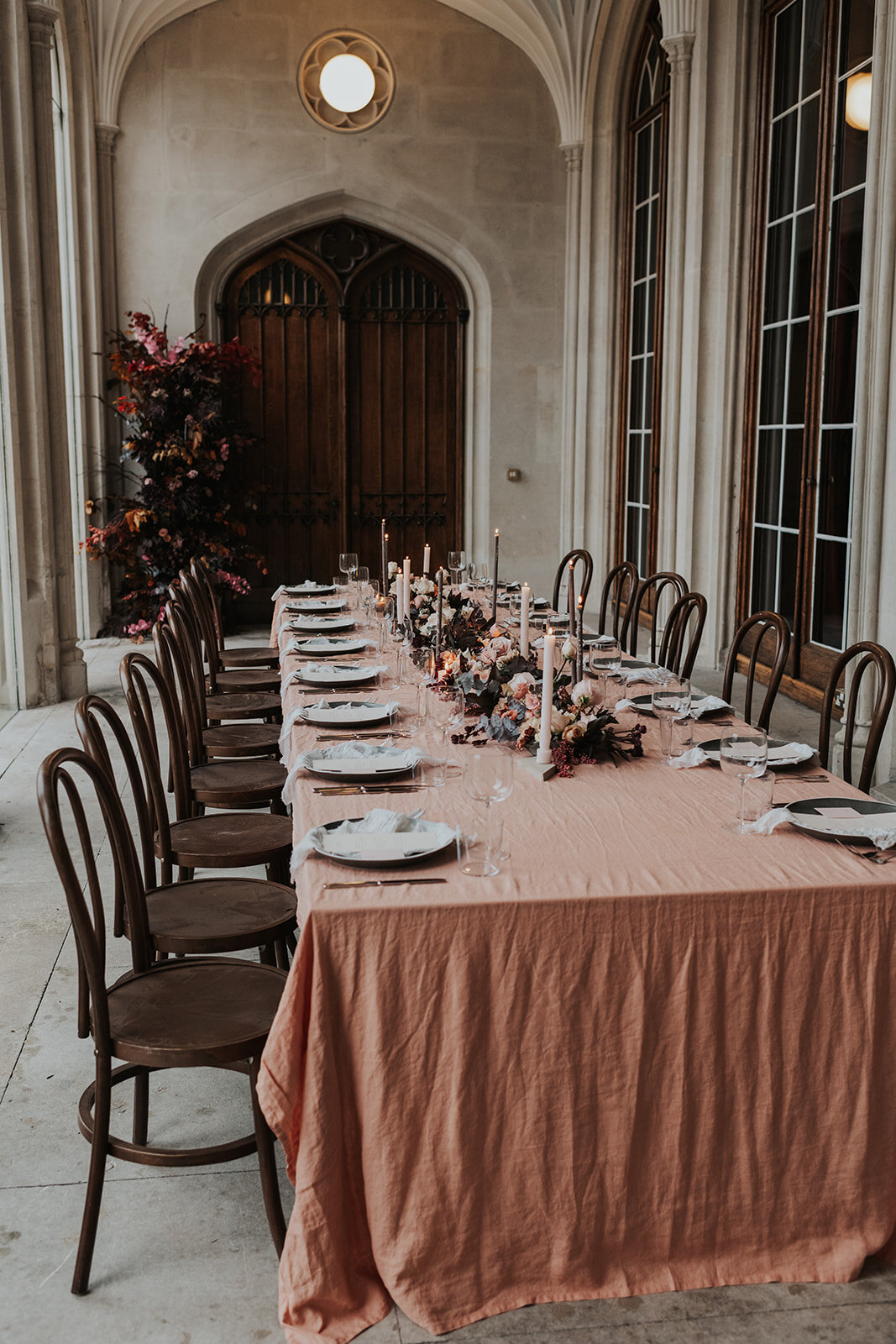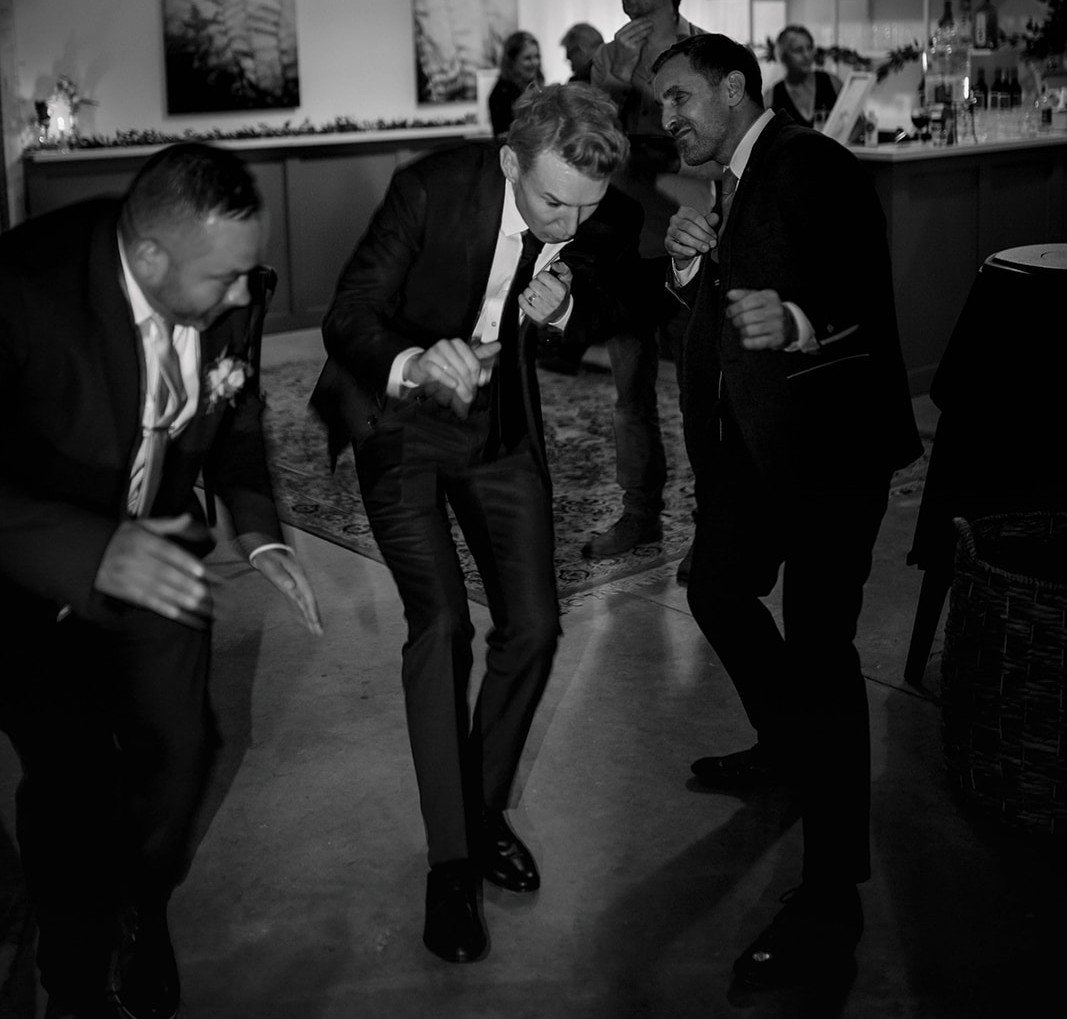5 Steps To Setting a Wedding Budget
HOW TO FIGURE OUT YOUR AFFORDABLE WEDDING BUDGET
It’s easy to skip this step and go straight to the food and wine tasting, but creating (and sticking to) a budget is probably the most important part of your wedding planning journey.
To help you out I’ve broken down the wedding budget planning process into 5 easy steps and these steps can be applied whether you are working with £10,000 or £100,000.
Image by Emma Ryan
1. WHO IS CONTRIBUTING?
Whether it is you and your fiancé funding the wedding alone or maybe your parents and other family members are wanting to help with funds - This is a good first step in calculating your overall wedding budget.
Try finding out how much they are willing to add to the pot or perhaps they are wanting to take care of a particular element of your big day? I know it can be difficult and sometimes awkward to breach the subject of money, but knowing who is helping out is going to make a difference towards figuring out your wedding budget.
2. DO THE MATHS
Now it is time to focus on your own contribution.
How much can you and your fiancé afford to comfortably spend on the wedding, given all of the current expenses you have?
Taking into account your monthly income, how much can you both reasonably save between now and the dream wedding date?
How much can you pull, if any from a savings account?
Using a combination of your answers from these three questions along with the answer you have from step one you should have an estimated wedding budget - Good start!
Photography by Beth Wilson
Photography by Beth Wilson
3. COUNT YOUR GUESTS
Now you have an estimated overall wedding budget you need to know how many people you are wanting to invite.
Remember the cost of a wedding is pretty much dependent on the number of guests you invite. Not only will it determine the size of your venue, but also how much food and alcohol you have to provide - The three of these things being some of the first you should look into arranging, as they will dictate how much of the wedding budget you have remaining for the other aspects of the day.
At this stage I would recommend costing up your wedding based on how many guests you would love to celebrate alongside, you can then work back from this figure and discuss with your partner how many guests would be reasonable within your budget. Remember that most aspects of a wedding day are a ‘per head’ expense; including stationery, furniture hire and even cake slices!
Something else to note here would be that in today’s Pinterest-worthy world, where aesthetically pleasing weddings are the in-thing you should allow a little more budget per head to recreate what you see online if this is the look you are after.
Image by Lauren Knuckey
4. MUST HAVES
Without a doubt you and your fiancé will have a difference of opinion on what areas of your wedding are priority and ultimately worth a bigger share of your wedding budget. A question I ask to each member of my couples at the very start of wedding planning is “What one aspect/item/area is the most important thing to you?” - Something you should most definitely discuss.
Budget for these two things before anything else and then work backwards down the priority list.
5. knowledge is power
There are both obvious and hidden costs involved when planning a wedding that you’ll have to consider before your budget is locked down. Research all of the costs involved with wedding planning before dividing up your budget as it’s easy for your wedding budget to become a distant memory if you haven’t accounted for everything.
You’ll also need to know the cost of things in your desired location at your desired time of year, obviously a wedding will be more expensive to host on a Saturday in July compared to a Wednesday in October. Do your research on the type of wedding you want and then be honest and decide whether or not it fits your budget.
Image by Lauren Knuckey
Image by Lauren Knuckey
Once your estimated wedding budget and ideal wedding (with or without a few tweaks) come close to each other it’s time to create a spreadsheet and allocate an exact amount to each area of your special day, use this spreadsheet to record estimated/budgeted spend and actual spend.
An important thing to avoid is a lot of debt, especially if you want a harmonious marriage - Think beyond your big day to your big life ahead of you! I have three spend-saving tips to help you:
- Start putting savings away as soon as you get engaged
- Open a separate wedding account so it is easy to keep track of spending
- Remember it isn’t about how much money you spend but how much joy you feel on the day
If Covid has taught me one thing about weddings it’s that the unexpected £200 town hall wedding in a white jumpsuit from ASOS is just as incredibly special as the all-singing, all-dancing affair!
I help couples regularly create and navigate their wedding budget, both big and small and if you would like to discuss how I can help with this please just drop me a message below!








